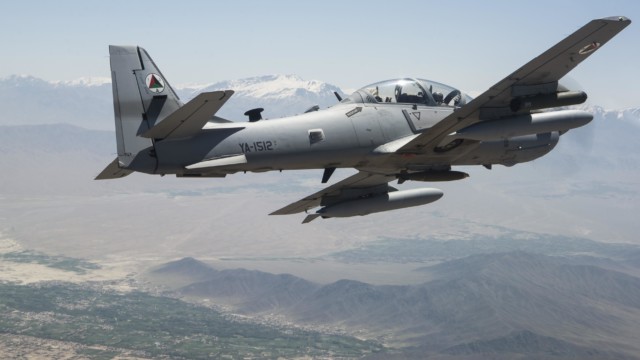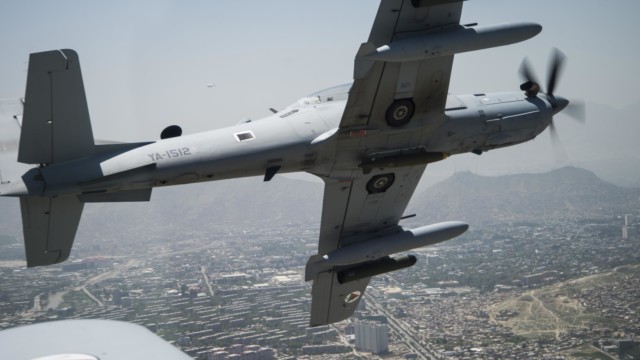The United States and Nigeria share two top priorities: boosting trade and fighting terrorism. Presidents Donald Trump and Muhammadu Buhari discussed both at the White House.
Not on the agenda – derogatory language Trump reportedly used to describe African nations in January.
CGTN’s Nathan King reports.
U.S. President Trump did not deny using a vulgar term to describe countries in Africa earlier while meeting with a group of Senators on January 11. Trump also did not offer an apology for the comment as he stood in the Rose Garden alongside Nigerian President Muhammadu Buhari.
The Nigerian president’s visit follows an uncomfortable start to the Trump administration’s approach to the world’s second most populous continent. Trump caused anger in Nigeria last year after reports that he said Nigerians wouldn’t want to return to their “huts” if allowed to visit the U.S.
.@POTUS Trump with President @MBuhari: #Nigeria is a valued partner and a great friend. The United States is committed to working alongside Nigeria as we seek a future of strength, property, and peace for both of our countries. pic.twitter.com/p9WAoIDEbR
— Department of State (@StateDept) April 30, 2018
But during this visit, Buhari elected to put the reported controversies aside and instead focused on shared priorities. Trump and Buhari touched on aid and removing trade barriers; agriculture and oil; military and intelligence cooperation; and the fights against corruption and Islamist terrorism.
The White House recently sold a dozen counter-insurgency aircraft worth $496 million to Nigeria to help in its fight against Boko Haram. The 12 Tucano A-29 ground attack aircraft are slated to be delivered to Nigeria by 2020.
Trump’s approval of a $600 million arms sale to Nigeria, delayed under the Obama administration, will also be combined with more anti-terror training for Nigerian forces to defer the scourge of Boko Haram and other terror groups.
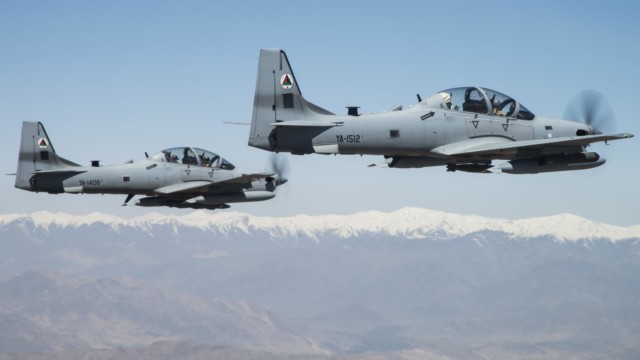
The U.S. also wants to invest more in Nigeria and is mulling infrastructure projects like railways – as is China. But the U.S. President, always fixated on trade deficits and barriers, urged Nigeria to open up to U.S. investment.
Closer Relations between the U.S. and Nigeria, and Africa as a whole may have been the agenda but the U.S. President went off script, too. President Buhari, ever respectful to his host, listened as Trump railed against U.S. immigration laws and other subjects.
Africa policy has largely taken a back seat to the Middle East, Europe, and Asia during the Trump administration’s first year. This meeting did not appear to signal any change in priority status to other African leaders who might be listening.
 CGTN America
CGTN America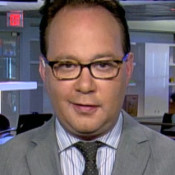
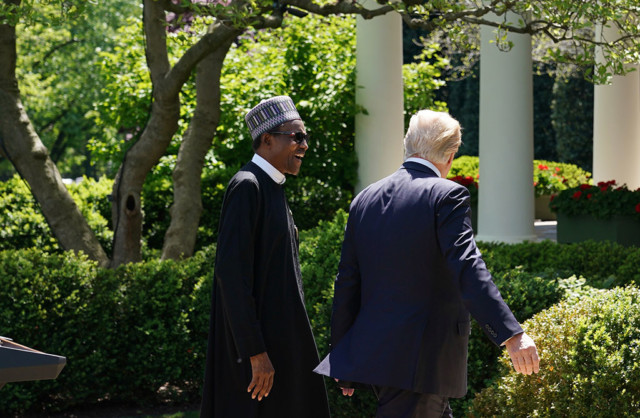 US President Donald Trump and Nigeria’s President Muhammadu Buhari make their way from a joint press conference in the Rose Garden of the White House on April 30, 2018 in Washington, DC. (AFP PHOTO / Mandel NGAN)
US President Donald Trump and Nigeria’s President Muhammadu Buhari make their way from a joint press conference in the Rose Garden of the White House on April 30, 2018 in Washington, DC. (AFP PHOTO / Mandel NGAN)
